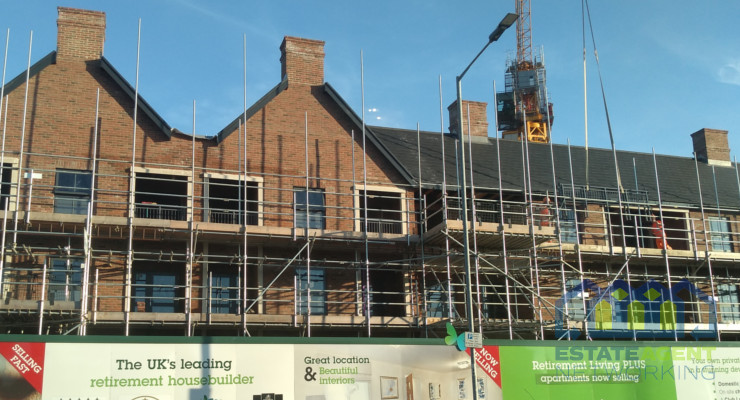Tear down barriers to help diversify the housing market, says FMB
Small house builders, who account for just ten per cent of all new homes built across the country, won’t be able to increase their market share unless a series of barriers are removed, says a new report, ‘Supporting SME Housebuilders: Challenges and Opportunities’, commissioned by the Federation of Master Builders (FMB) from the London School of Economics and Political Science (LSE).
Brian Berry, Chief Executive of the FMB said: “The research recognises the value that small house builders can bring to the housing market in terms of greater consumer choice and quality. The UK has an unusual housing market structure compared to other developed nations, with a high reliance on a small number of volume house builders. The Housing Minister, Mathew Pennycook MP, says he wants to diversity the housing market and restore the number of smaller house builders to the market, but to achieve this aim many hurdles need to be overcome. One of the biggest barriers is the failure of local authorities to allocate sufficient small sites for development in their Local Plans – something that was notably overlooked in the Government’s changes to the planning system announced last week.”
Berry continued: “The research reveals that the housing market cannot be relied upon to readjust to deliver the type of SME housing output seen in the 1980’s, when they accounted for 40% of all new homes. Government intervention is needed if we are to have a more diverse housing market. This includes the introduction of government backed low-interest loans and more affordable funding options. The research also highlights the current skills crisis calling for a greater focus on apprenticeships, training, and pathway for school leavers.”
Christine Whitehead, Emeritus Professor of Housing Economics at the LSE and one of the report’s authors said: “SME house builders are equipped with unique skills and local expertise, with many wanting to expand their businesses. But to leverage their impact on the market they must overcome barriers, many of which disproportionately impact smaller house builders compared to larger developers. SMEs can deliver high quality products, and they reportedly want to play more of a role in greening homes and the self-build market, which all offer opportunities for growth. While smaller house builders clearly could play more of a role in the market by providing homes to match local need, boost the local economy and build upon unused land, to name a few, they are held back an environment that offers up too many barriers for growth”.
LSE Research Key Findings
- SME housebuilders are crucial for:
- Local expertise and flexibility in smaller or complex projects overlooked by larger developers.
- Development of awkward sites (e.g., ex-industrial land, repurposed buildings).
- Strong community connections and focus on quality.
Barriers Faced by SME Housebuilders
- Planning System:
- Delays, complexity, fragmented processes, and lack of local authority (LA) resources.
- Perceived bias towards larger developers.
- Land Market:
- Difficulty accessing suitable and affordable land.
- Finance:
- Insufficient access to affordable funding and high upfront costs.
- Labour and Materials:
- Shortages in skilled labour and rising material costs.
- Regulations:
- High burdens related to environmental and heritage preservation.
Opportunities for Growth
- Leveraging quality and customisation as unique strengths.
- Potential for growth in green buildings, self-builds, and high-end properties.
- Collaboration with local authorities on small-scale or brownfield developments aligned with regional goals.
- Promoting innovation, sustainable practices, and local employment.
Recommendations for Change
- Planning System:
- Streamlining processes and identifying more SME-suitable land.
- Reducing regulatory complexity and planning fees.
- Finance:
- Government-backed low-interest loans and more affordable funding options.
- Skills Development:
- Greater focus on apprenticeships, training, and pathways for school leavers.
- Support Mechanisms:
- Partnerships between SMEs and larger developers to enhance competitiveness.
- Improved support for sustainable building practices and reduced development costs.
Conclusions
- Targeted government interventions are essential to:
- Create a level playing field between SMEs and larger builders.
- Address critical barriers to unlock SME potential, leading to increased housing variety, sustainable practices, and innovation.
- Proposed measures include low-interest loans, apprenticeship schemes, and reduced costs, fostering sector-wide benefits.









